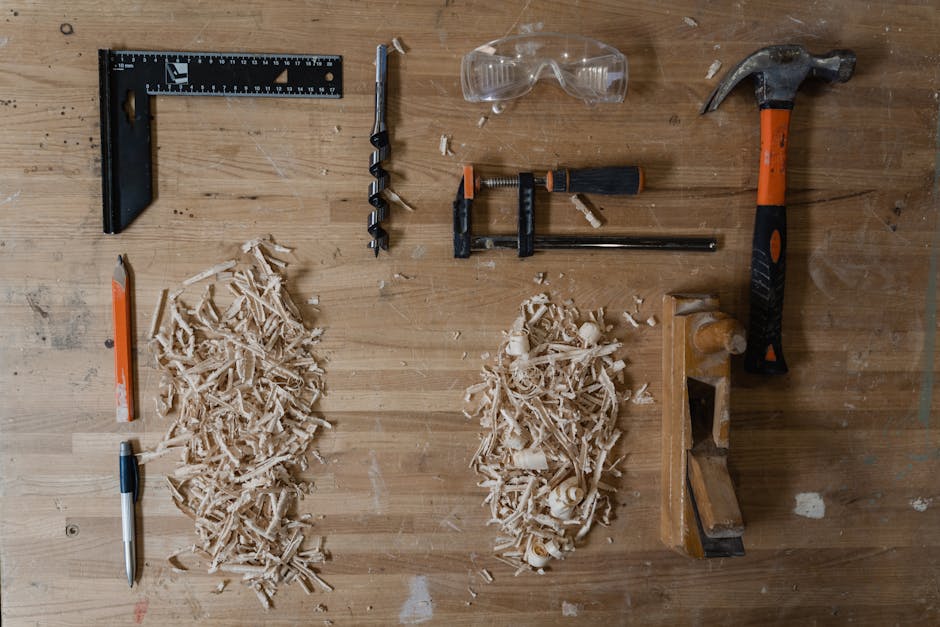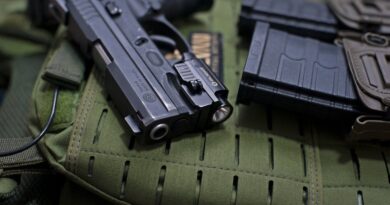How to Organize a Firearm Safety Workshop
Firearm safety is a critical aspect of responsible gun ownership. Ensuring that individuals are educated on proper handling, storage, and use of firearms can prevent accidents and save lives. One effective way to promote firearm safety within communities is by organizing workshops dedicated to this important topic. In this comprehensive guide, we will explore the intricacies of organizing a firearm safety workshop, covering everything from planning and logistics to content and delivery. Whether you are a firearms instructor, community leader, or concerned citizen, this article will provide you with the necessary tools to create a successful and impactful firearm safety workshop.
The Importance of Firearm Safety Workshops

By Tima Miroshnichenko via Pexels
Firearm safety workshops play a crucial role in educating individuals about the safe and responsible use of guns. These workshops provide participants with the knowledge and skills necessary to handle firearms in a secure manner, reducing the risk of accidents and injuries. By promoting proper firearm safety practices, workshops help to create a culture of responsible gun ownership within communities. Additionally, these workshops can dispel common misconceptions and myths surrounding firearms, helping to foster a more informed and educated populace.
Planning and Preparation
Organizing a firearm safety workshop requires careful planning and preparation to ensure its success. The first step is to define the objectives of the workshop and identify the target audience. Consider whether the workshop will be geared towards beginners, advanced shooters, or specific groups such as women or youth. Next, determine the duration and format of the workshop, as well as the location and facilities needed. It is essential to secure any necessary permits or permissions, as well as to establish a budget for the workshop.
Once the logistics are in place, the next step is to develop the content and curriculum for the workshop. This may include topics such as firearm safety rules, proper handling and storage techniques, shooting fundamentals, and legal considerations. Consider incorporating hands-on activities, demonstrations, and interactive discussions to engage participants and reinforce key concepts. Finally, recruit qualified instructors or speakers to lead the workshop and ensure that they are knowledgeable and experienced in firearm safety.
Marketing and Promotion
Effective marketing and promotion are essential for attracting participants to your firearm safety workshop. Utilize a variety of channels to reach your target audience, including social media, community bulletin boards, local newspapers, and word of mouth. Highlight the benefits of attending the workshop, such as gaining valuable skills, meeting like-minded individuals, and contributing to a safer community. Consider offering incentives such as discounts or giveaways to encourage early registration and attendance.
Collaborating with local gun stores, shooting ranges, or community organizations can also help promote your workshop and reach a broader audience. Partnering with relevant stakeholders demonstrates a commitment to firearm safety and can lend credibility to your event. Consider reaching out to schools, churches, or civic groups to promote the workshop and encourage participation from diverse backgrounds.
Content and Delivery
The success of a firearm safety workshop hinges on the quality of its content and delivery. Ensure that the workshop covers essential topics such as firearm safety rules, safe handling practices, and marksmanship fundamentals. Incorporate real-life scenarios, case studies, and interactive exercises to make the material engaging and relatable. Emphasize the importance of situational awareness, decision-making under pressure, and ethical considerations when using firearms.
Utilize a variety of instructional methods to cater to different learning styles and preferences. Consider incorporating multimedia presentations, hands-on demonstrations, live-fire exercises (if applicable), and group discussions to enhance the learning experience. Encourage active participation from participants by asking questions, soliciting feedback, and facilitating group activities. Create a supportive and inclusive environment where participants feel comfortable asking questions and sharing their experiences.
Evaluation and Feedback
After the workshop concludes, it is essential to gather feedback from participants to assess its effectiveness and identify areas for improvement. Distribute anonymous surveys or evaluation forms to collect feedback on the content, delivery, and overall experience of the workshop. Analyze the feedback received and use it to refine future workshops and enhance the quality of your programming.
Consider conducting follow-up surveys or interviews with participants to gauge the long-term impact of the workshop on their knowledge and behavior regarding firearm safety. Use this feedback to track progress and measure the success of your workshop in achieving its objectives. Consider establishing partnerships with local law enforcement agencies or community organizations to support ongoing education and training in firearm safety.
Expert Opinions
According to firearms instructors and safety experts, organizing firearm safety workshops is a critical component of promoting responsible gun ownership and preventing accidents. By providing participants with the knowledge and skills necessary to handle firearms safely, these workshops help to create a safer and more informed community. Experts emphasize the importance of ongoing education and training in firearm safety to ensure that individuals are equipped to handle firearms responsibly.
Common Misconceptions
One common misconception surrounding firearm safety workshops is that they are only intended for experienced shooters or gun enthusiasts. In reality, these workshops are designed to cater to individuals of all skill levels, from beginners to advanced shooters. By providing participants with a solid foundation in firearm safety principles, workshops can empower individuals to handle firearms safely and confidently.
Conclusion
Organizing a firearm safety workshop is a valuable and impactful way to promote responsible gun ownership and prevent accidents. By carefully planning and preparing the workshop, developing engaging content, and collaborating with relevant stakeholders, you can create a successful and meaningful event that educates and empowers participants. By emphasizing the importance of firearm safety and providing participants with the knowledge and skills necessary to handle firearms responsibly, you can help create a safer and more informed community.
Remember that firearm safety is everyone’s responsibility, and by promoting education and awareness, you can help prevent accidents and save lives. Whether you are a firearms instructor, community leader, or concerned citizen, organizing a firearm safety workshop is a proactive step towards creating a culture of responsible gun ownership and ensuring the safety of your community.




